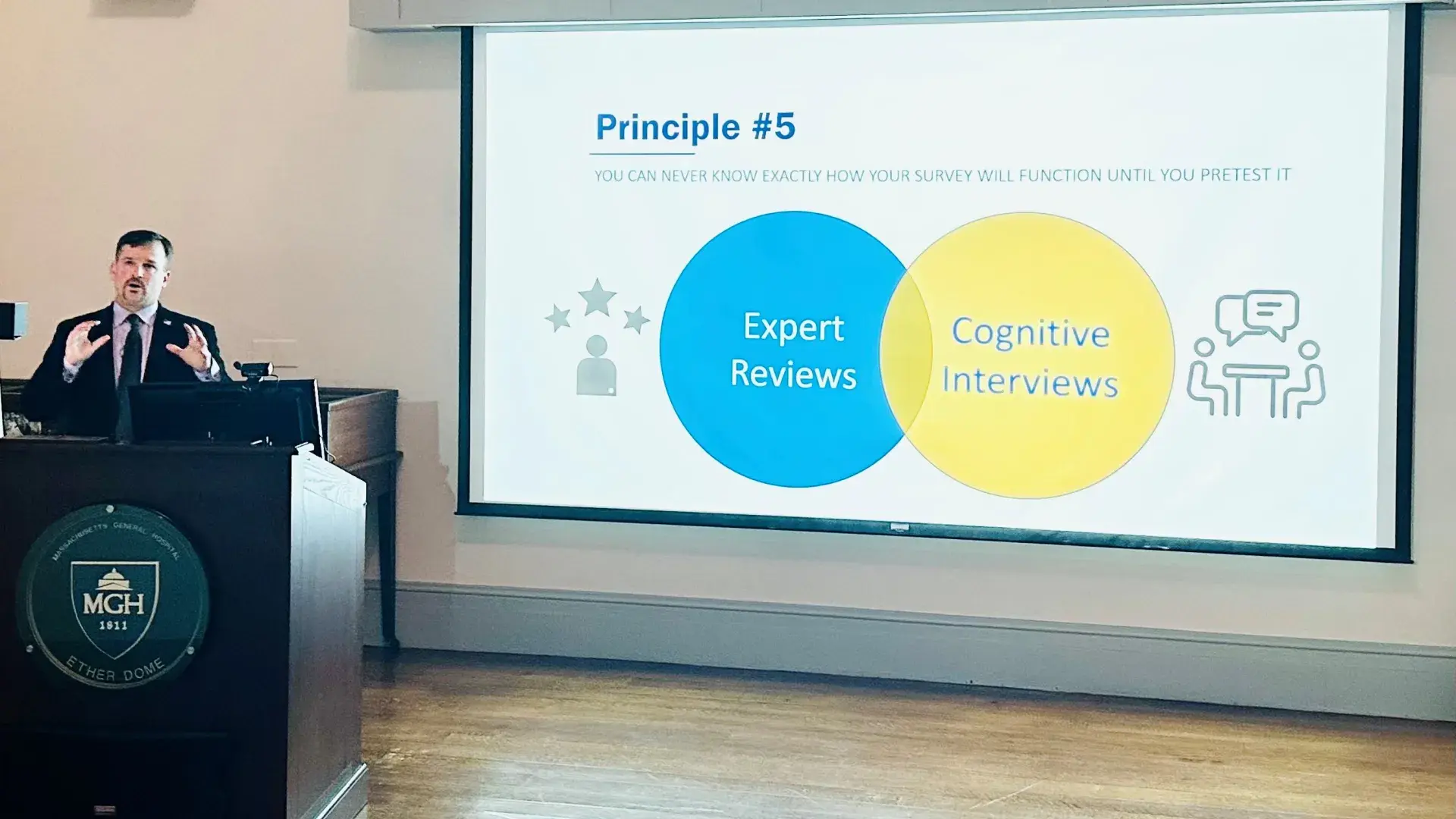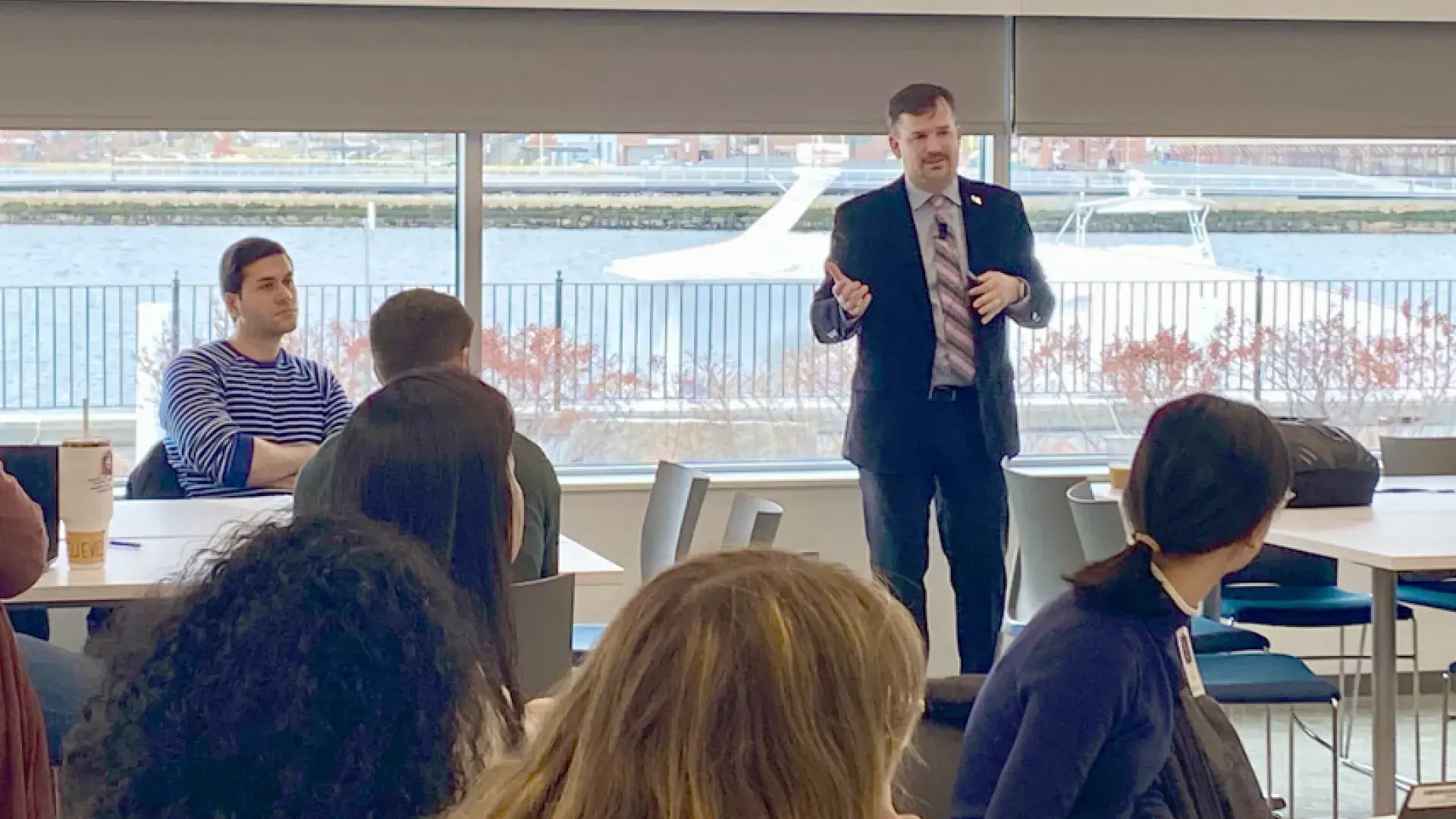
In 1846, William T.G. Morton made history when he demonstrated the first public surgery using an anesthetic (ether) in the Massachusetts General Hospital (MGH) surgical amphitheater. In that same space, now known as the Ether Dome, members of the MGH community—educators, clinicians, scientists, and trainees—gathered on Monday evening to see visiting scholar Dr. Anthony Artino in action. This time, no anesthesia was involved.
From the lectern in the historic Ether Dome, Dr. Artino (or “Tony”) explored the role and use of survey methodologies in medical and health professions education research. As an editor for several reputable journals, such as the Journal of Graduate Medical Education and Academic Medicine, he shared that more than half of original research in medical education journals typically involve surveys and rejections often result from poor survey design or low response rates. In his grand rounds, “Lies, Damned Lies, and Surveys,” (a riff off a famous quote by Mark Twain) which was co-hosted by MGH’s Slavin Academy for Applied Learning in Health Care and its Institute of Health Professions (IHP), Artino discussed when (and when not) to use surveys and shared his six principles for designing and improving survey quality. He also explored cognitive and motivational processes involved when respondents engage with surveys.
“People are generally unmotivated to take your surveys,” Artino shared during his grand rounds, “and the harder you make your survey to complete, the less motivated they will become and the less useful the feedback will be.”
Sharing tips for improving motivation and survey quality, Artino encouraged the group to make surveys “conversational,” like you are having an actual conversation with another person.
There is no questioning Artino’s expertise in educational research and survey design, considering his distinguished career, scientific leadership experience, and authorship of more than 250 peer reviewed publications, numerous books, and research grants. Artino, who currently serves as professor and associate dean for educational research at the George Washington University School of Medicine and Health Sciences in Washington, D.C., spent more than 23 years as an active-duty military officer and retired in 2020 as a Captain in the U.S. Navy Medical Service Corps. With academic degrees in biomedical engineering, physiology, instructional systems, and educational psychology, Artino applies a holistic, common-sense and interdisciplinary approach to his research and combines it with his passion for teaching.

